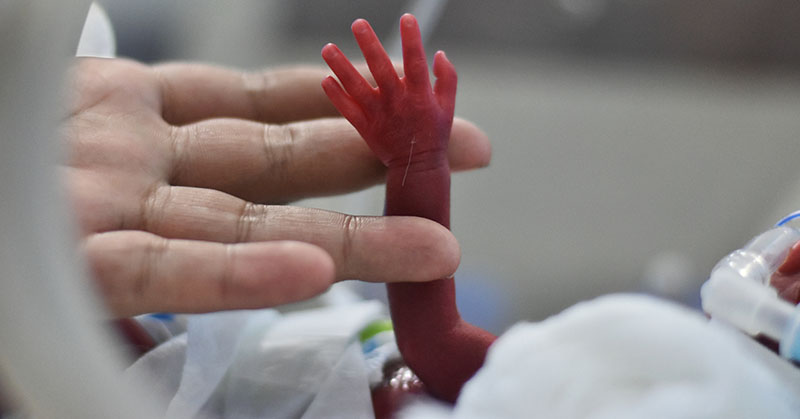
Children who were exposed to a steroid at 34 to 36 weeks of pregnancy are no more likely to have cognitive effects than children whose mother did not receive a steroid, suggests a study funded by the Eunice Kennedy Shriver National Institute of Child Health and Human Development (NICHD). The findings help to allay concerns that fetal exposure to a steroid in the uterus—given to speed lung development in case of preterm birth—could affect a child’s neurodevelopment.
The study was conducted by Cynthia Gyamfi-Bannerman, M.D., M.S., and colleagues in the NICHD Maternal-Fetal Medicine Units Network. It appears in the Journal of the American Medical Association.
Background
A previous study concluded that giving a single dose of the steroid betamethasone to pregnant women at risk of giving birth at 34 to 36 weeks of pregnancy significantly reduced the risk of respiratory complications in their newborns. However, the study also found that these infants were more likely to develop hypoglycemia (low blood sugar). Prolonged hypoglycemia in newborns is associated with brain injury. Other research suggests that multiple doses of steroids before birth could affect a child’s neurodevelopment.
Results
For the current study, researchers evaluated children of the previous study’s participants when the children were six years old or older. A psychologist evaluated each child using a variety of tests that measured verbal and nonverbal reasoning and comprehension. A total of 949 children completed the testing (479 in the betamethasone group and 470 in the placebo group).
Both groups of children scored similarly across all measures of the test, called the Differential Ability Scales. A total of 17.1% in the betamethasone group received a score of less than 85, which did not differ significantly from the 18.5% of the placebo group. Similarly, the average score was 96.6 for both groups (compared to a national average of 100). Also similar between the groups were scores for verbal ability, nonverbal ability, spatial ability, social responsiveness, gross motor function, and behavior.
Significance
The authors conclude that giving a steroid to pregnant women at risk for late preterm birth to reduce potential respiratory complications in their infants is not associated with adverse neurodevelopmental outcomes at age 6 or older. The results help support the prescribing of corticosteroids to pregnant women at risk for late preterm birth.
Reference
Gyamfi-Bannerman, C, et al. Neurodevelopmental Outcomes After late preterm antenatal corticosteroids: The ALPS follow-up study. The Journal of the American Medical Association. 2024. doi:10.1001/jama.2024.4303

 BACK TO TOP
BACK TO TOP